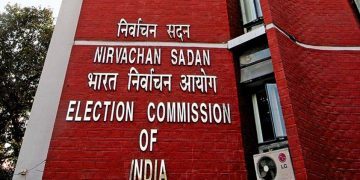Cuttack: A national-level workshop on agriculture is scheduled to be organised at the National Rice Research Institute (NRRI) here from May 30 to June 2.
At least 300 agriculturalists and 200 agri entrepreneurs from across the country would participate in the workshop. Some scientists of Philippines-based International Rice Research Institute (IRRI) are also scheduled to participate in the workshop, said sources in the NRRI.
It is learnt that participants in the workshop would deliberate on the high-yielding and calamity-resistant paddy varieties developed in the country. The workshop would also focus on advanced paddy varieties being created at various rice research institutes across India.
The workshop is being organised jointly by the NRRI, Hyderabad-based Indian Institute of Rice Research and Association of Rice Researchers. The Director General of Indian Council of Agricultural Research (ICAR), Trilochan Mohapatra, would grace the occasion as the chief guest. The Vice-Chancellors of 70 agriculture universities would participate in the workshop, said NRRI chief scientist Sarat Pradhan.
According to Pradhan, the country is unlikely to face any shortage on food grains till 2035. “Scientists are trying to make India self-sufficient in food production till 2050. Our focus is to raise paddy production by two million tonnes per year,” Pradhan said.
The NRRI chief scientist claimed that China is now producing 60 quintals of paddy per hectare while India is producing 42 quintals per hectare.
“India had a population of 30 crore during independence while paddy production was at 25 million tonne per annum. Now, the population has reached 130 crore and paddy production has been raised to 113 million tonne per year,” he claimed.
NRRI sources revealed that India is now exporting around 10 million tonnes of paddy to other countries. “We are exporting Basmati varieties of rice to countries like Iran, Saudi Arabia and Kuwait. Non-Basmati varieties of rice are exported to African countries. Last year, we exported non-Basmati rice to China,” Pradhan said.
Elaborating the performance of NRRI, Pradhan claimed that they have so far developed 39 high-yielding varieties of paddy. Paddy varieties like Maudamani, Pradhan, CR 500, CR 101 and CR 205 have become popular among farmers, Pradhan said.
NRRI sources said a farmer can produce up to 40 quintals per acre by cultivating Maudamani variety of paddy. On the other hand, paddy varieties like CR 801, CR 802 can withstand adverse conditions like heavy rain and drought, they added.
“Scientists at the NRRI are trying their best to develop more and more high-yielding varieties of paddy. Importance is being given to create agricultural entrepreneurs in India. Farmers are earning around Rs 48,000 crore per annum by cultivating paddy varieties developed by the NRRI,” Pradhan said.






































